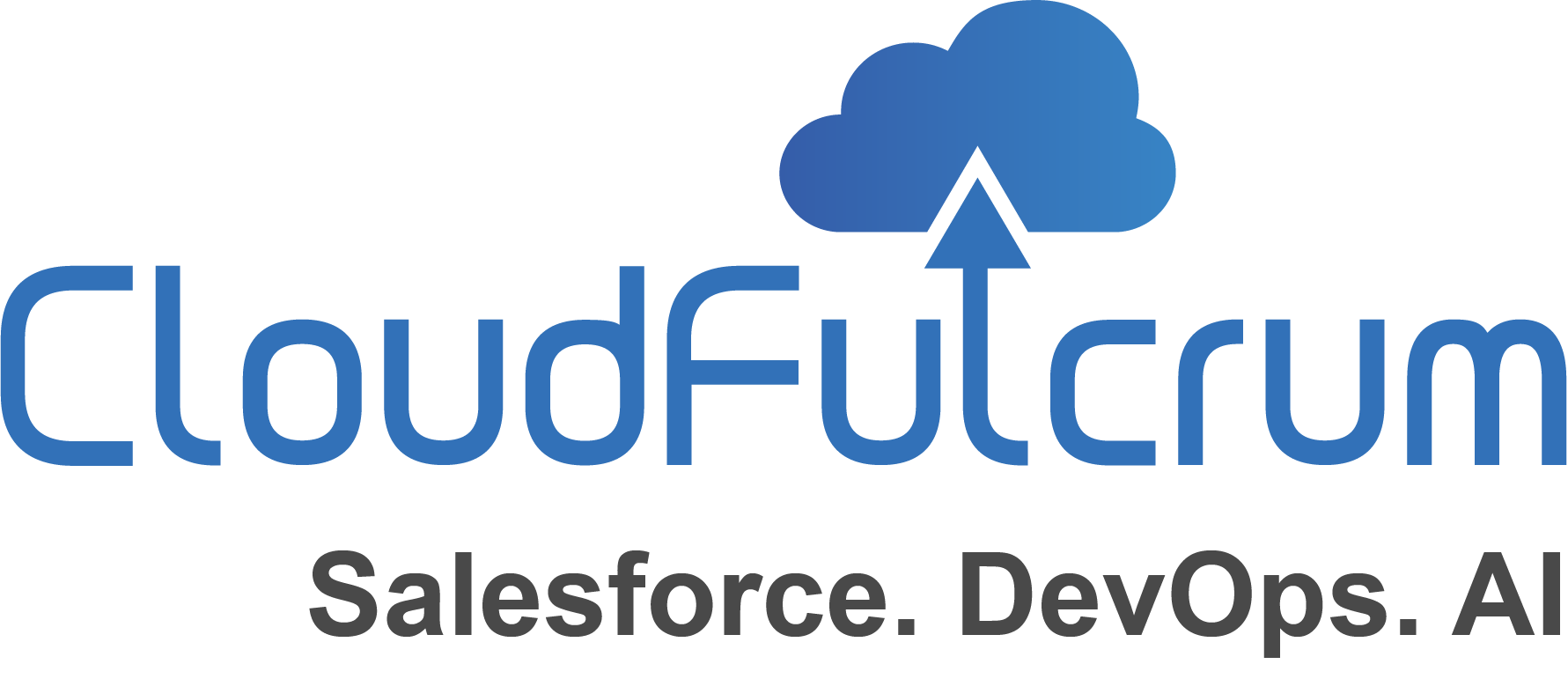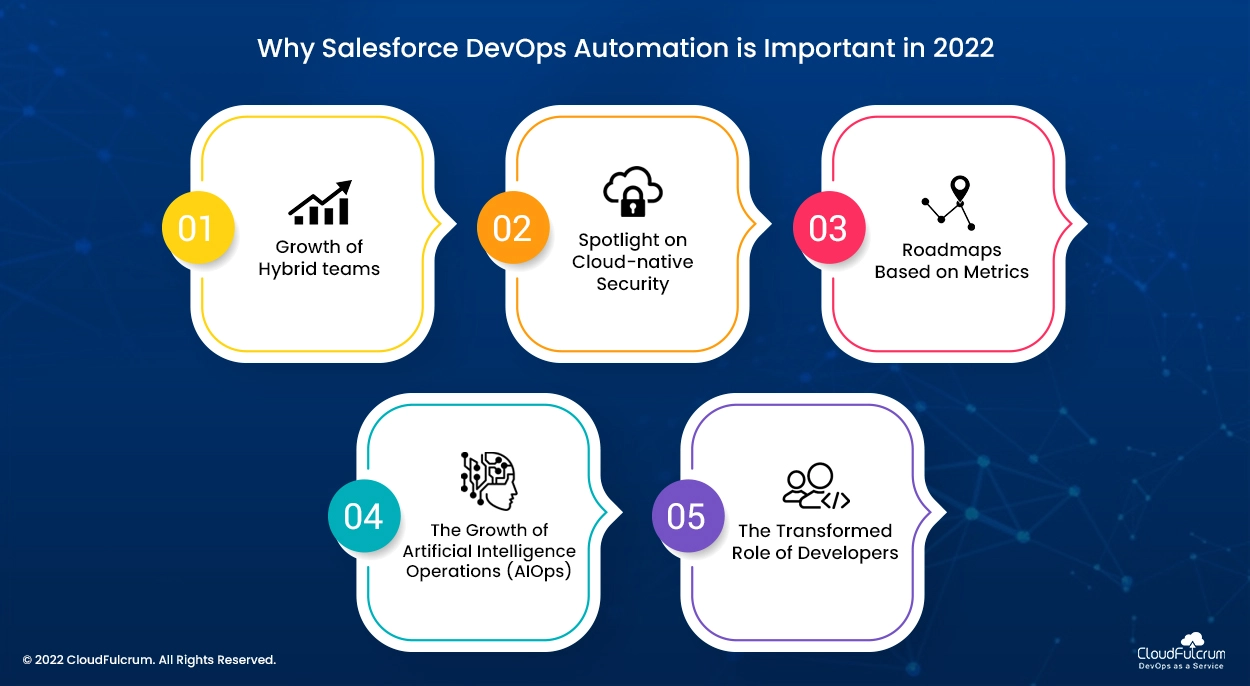Introduction
Salesforce DevOps has become the gold standard in the contemporary global IT industry. In the last two years, several organizations witnessed massive digital transformations because of the COVID-19 pandemic, as they were compelled to adapt themselves to deliver their services to customers. The pandemic made organizations realize the significance of investing in and fully embracing Salesforce DevOps automation. The global IT industry witnessed an evolution in the technology platforms, practices, and methods to meet their customers’ needs. The demand for Salesforce DevOps and automation have increased so excessively that organizations now rely more on their Salesforce DevOps practices to make up for the gaps created during the pandemic.
Before the 2020 pandemic, several delivery teams wished for automation, but they had weak ambition to invest the time and resource to fully embrace Salesforce DevOps automation. Automation not only simplifies the manner in which software is developed, delivered and managed, but also results in swifter delivery of reliable software and diminished risk to businesses.
The impact of several challenges arising from the pandemic on organizations led to wider acceptance of the need to invest in adopting Salesforce DevOps automation. In a study by HFS Research on how organizations are coping with COVID-19, they found that more than half of the organizations now wish to increase their use of automation. Akin to several organizations who now want to do things differently and adopt more automation, these organizations are confused in deciding how to bring in more automation in their Salesforce DevOps pipeline.
What is Salesforce DevOps Automation?
In layman terms, Salesforce DevOps automation is the use of automation to simplify business processes by eliminating all repetitive and manual operations in the software development life cycle. This also implies that Salesforce DevOps automation has minimized the necessity for human support in performing certain tasks. It allows teams to provide constant updates swiftly and makes the entire system extremely reliable. Salesforce DevOps automation has helped expand the focus beyond product delivery. Today, Salesforce DevOps and automation are not only about delivering new features and updates, but also about providing ‘value’ to the customer.
From this year onwards, numerous organizations are enthusiastically following Salesforce DevOps automation to match the speed of their app development and incessantly improve and consistently stay skilled. Salesforce DevOps and automation are similar to hand and glove in agile development. Although automation sounds easy to achieve, it is not so. The decision involves selecting the appropriate automation testing platforms and answering questions such as what to automate, how to automate, and how much to automate, taking into account the available infrastructure. Salesforce DevOps automation expands the development and deployment of the software, while sustaining and enhancing the quality. It eliminates manual intervention and boosts team performance by allowing them to perform only the significant tasks instead of repeated ones.
Need for Salesforce DevOps Automation
From the perspective of software development, Salesforce DevOps automation improves the performance of the engineering teams with the aid of the highest quality DevOps tools. It energizes cross teams to work together by eliminating organizational silos. The minimized team inter-dependencies and manual processes for infrastructure management have enabled the software team to focus on regular releases, receiving swift feedback, and enhancing user experience. From an organizational perspective, Salesforce DevOps automation curtails the possibilities of human errors and saves the time used for error detection with the help of self-healing features. Moreover, it drastically reduces the time required for deploying new features and does away with any discrepancies caused due to human errors.
Why Salesforce DevOps Automation is Important in 2022
In the contemporary world, Salesforce DevOps and automation have become inseparable. Automation not only eliminates manual interferences, but also enables efficient lifecycle workflow of Salesforce DevOps. When Salesforce DevOps is backed by potent automation, it leads to top-class software and enables swift releases without impacting the end-user and organization. Let us understand below why Salesforce DevOps is the most needed strength in the contemporary times:
1. Growth of Hybrid teams
The current hybrid system of remote and in-office teams has created a need for online training and upskilling. When products and services are sold online on e-commerce websites, apps, and other SaaS platforms, there is a collaboration of the role played by both product and engineering teams. This has promoted the cross-functional and hybrid team culture within the organization. It integrates different teams to become the bedrock for delivering value to the customer.
2. Spotlight on Cloud-native Security
In the modern-day world and contemporary times, the Chief Information Security Officer focuses more on adopting DevSecOps (Development, Security, Operations) methodologies and embracing serverless, cloud-native technologies. Since several organizations are embracing the cloud concept, it is absolutely indispensable to implant security in Salesforce DevOps automation practices. This is a cultural shift that will enable to deliver new features swiftly and regularly. The security teams have to offer new tools and processes to ensure secure and rapid deployments.
Application Security is no longer a secondary option since Salesforce DevOps is currently adopted by numerous organizations. The application teams accept responsibility for application security along with the fluctuations in budgets. It inspires the teams to follow DevSecOps in toto and make the best use of Salesforce DevOps and automation. This results in uninterrupted development of the processes.
3. Roadmaps Based on Metrics
By following Salesforce DevOps Strategies, Salesforce DevOps automation can help teams measure the value achieved by them. On the basis of these economic metrics, the finance team can estimate the ROI and take appropriate and accurate decisions. Evaluation usually includes working on improving the teams, expanding the sales, or minimizing the expenses. The more promptly the teams identify the issues, the swifter can they lower the possibilities of potential risks. Salesforce DevOps automation can help create alerts in the application whenever the algorithm recognizes an error generated by factors such as revenue, prices, etc. This can save any loss of customer or sale by forewarning about the issue.
Salesforce DevOps Automation also bridges the gaps between various teams for better economic monitoring by fostering collaboration in app development. It creates a communicative environment that helps prevent the errors involving costs in the primary stages of app development.
4. The Growth of Artificial Intelligence Operations (AIOps)
It is extremely difficult to interpret oodles of data available today without the aid of supervision, observation, and analytical tools. This information overload can be overwhelming for any Salesforce DevOps engineer. AIOps comes in as a guardian angel for them, allowing them to decide what is necessary and what is not, while focusing on deployment.
Today’s state-of-the-art AI and Machine Learning (ML) helps businesses identify the discrepancies easily and since AI and ML are powered by robust Salesforce DevOps support, it can alleviate the pain of decision-makers in a complex situation involving swift decision-making. With the rise of Kubernetes, even technical barriers are eliminated in such a manner that any engineer from the development or operations team can deploy to Kubernetes and run Salesforce DevOps workloads with ease.
5. The Transformed Role of Developers
COVID-19 has transformed the manner in which organizations view technology. With tremendous progress in the global software industry, business preferences have switched and the demand for software skills has risen. Now the developers are involved not just in technology, but also in business teams. The sudden spate of technological experiences they have witnessed has made their presence indispensable in the organization. The technology officers of the organization now collaborate with the Salesforce DevOps team, who contribute to data strategy, designing technical strategies, and offering direction and guidance, based on their experiences.
Conclusion
Organizations that adopt Salesforce DevOps automation and embrace Salesforce DevOps best practices and tools can manage any business ambiguity and complexity, and fulfil customer needs with greater efficacy. By embracing Salesforce DevOps automation, organizations not only become productive and innovative in creating novel products swifter, but also offer great value to the customer. This year has seen the transition of numerous organizations towards Salesforce DevOps and automation. By accepting Salesforce DevOps automation, organizations invest more in software-driven innovation approaches; follow micro services-oriented architecture and new software development methodologies.
Salesforce DevOps automation has enhanced business efficiency by fostering a collaborative environment. It has increased the speed and sturdiness of software development, delivery, and deployment. It has stimulated team collaborations, enhanced customer experience, and optimized the entire business. This year, several organizations have experienced cultural, people, and process shifts, and Salesforce DevOps has proved to be a game-changer in managing this dynamic paradigm shift.
About CloudFulcrum
With its mission of “DevOps as a Service,” CloudFulcrum has been a part of multiple successful Salesforce DevOps implementations worldwide, with satisfied customers in BFSI, Health Care, Retail, Real Estate, and Technology verticals.
With our Salesforce DevOps consulting, we help enterprises align their Digital Transformation goals to achieve higher efficiency, faster time-to-market, and better quality of software builds with early identification of likely issues, enabling continuous release of Salesforce applications.

